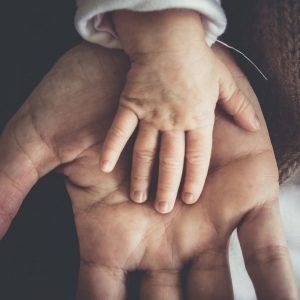
"The expected result from our work is our norm. Giving the client more than he expects is our goal."
FOR WHAT CAN I DEPRIVATE PARENTAL RIGHTS?
 Parents for a child are their reliable rear and protection. But, unfortunately, children often have to be protected from the parents themselves. It is not uncommon for parents or one of them to have absolutely nothing to do with how their children grow up, do not care about their health and development.
Parents for a child are their reliable rear and protection. But, unfortunately, children often have to be protected from the parents themselves. It is not uncommon for parents or one of them to have absolutely nothing to do with how their children grow up, do not care about their health and development.
There are severe cases when children are abandoned after birth or cases of Mowgli children who are brought up in conditions of social isolation and are deprived of elementary care and attention, are subjected to cruel treatment and abuse.
Therefore, the deprivation of parental rights is a forced extreme measure to protect children from careless parents, which entails serious legal consequences. Along with this, there are situations when one of the parents, who does not take part in the life and upbringing of the child, agrees to deprive him of parental rights for further adoption, for example, by the new spouse of the ex-wife.
Therefore, the legislation establishes clear grounds for deprivation of parental rights, in order to avoid abuse of the norms of the law in order to release from parental responsibilities.
Why can they be deprived of parental rights?
- The parents or one of them shirk the duties of raising the child and / or do not ensure that the child receives a complete general secondary education;
- The parents abandoned the child after his birth or did not take him away from the maternity hospital within 6 months after his birth without a valid reason, did not show parental care;
- For child abuse;
- If the parents exploit the child, force him to wander, to beg;
- If the parents are chronic alcoholics or drug addicts;
- Parents convicted of a deliberate crime against a child, which must be confirmed by a court verdict.
Since there are no clear explanations in the legislation about what actions are related to evasion of duties and upbringing, abuse, exploitation of children, these facts are often assessed by the courts according to their inner conviction in each specific case. Therefore, a strong evidence base and argumentation is important here. This can be written evidence of an appeal to law enforcement agencies, photographs of beatings, photos and videos, recordings of telephone conversations and correspondence, the conclusion of the guardianship and guardianship authorities, testimony of witnesses, court sentences, certificates from a neuropsychiatric or narcological dispensary, court sentences on prosecution for cruel appeals or malicious evasion from the payment of alimony and other evidence that indisputably testifies to the systematic deliberate evasion by parents from fulfilling parental responsibilities, ignoring numerous warnings, evidence that their actions or inaction threaten the life and health of the child.
And even if the guilt of the parents is proved, given that the deprivation of parental rights is an extreme measure, in some cases the courts refuse to deprive of parental rights, limiting themselves to a warning about a change in attitude towards raising a child with the establishment of a duty on the guardianship and guardianship authorities to control the correction of parents. Also, in order to protect the interests of the child, the court, by its decision, may take it away from the parents and transfer it to the guardianship and guardianship authorities. The court can restrict parental rights for a certain period when the parents or one of them cannot fulfill their parental responsibilities due to, for example, serious illness, mental disorder, imprisonment or absence from the country. During this period, such families are monitored by the guardianship authorities, and after the restoration of their functions, the restrictions are lifted.
The procedure for deprivation of parental rights takes place exclusively in court. An application can be submitted by one of the child's parents, representatives of the guardianship authorities, prosecutors, guardians and trustees, the person in whose family the child lives, representatives of medical institutions or the child himself upon reaching the age of 14.
Calculate the price of assistance:
1 question
Have other lawyers handled your case?
2 question
Are you in Kyiv or Kyiv region?
3 question
Do you need legal assistance urgently?
Other articles on this topic:
call back
during the day




